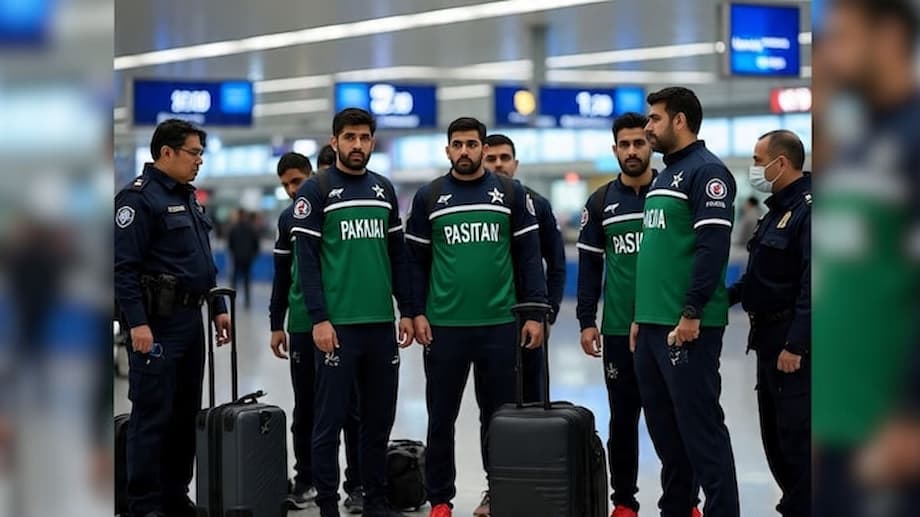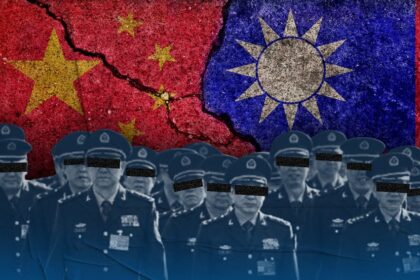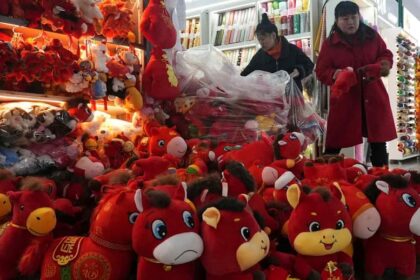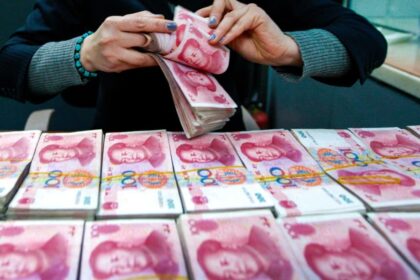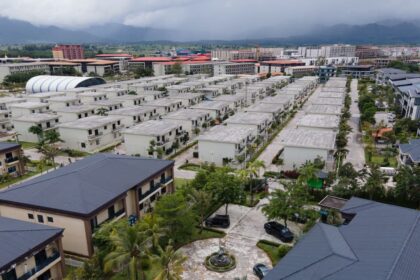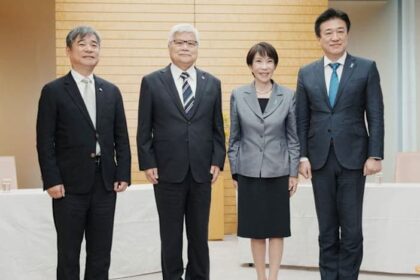A football tour that was never real
Japanese immigration officers deported 22 Pakistani men who arrived in full football kits and claimed to be a club side booked for friendly matches. The group carried letters that said they were registered with the Pakistan Football Federation and held No Objection Certificates that appeared to come from Pakistan’s Ministry of Foreign Affairs. The paperwork fell apart under scrutiny during airport interviews in Japan, and the men were placed on return flights to Pakistan. Investigators in Pakistan say the scheme was a human trafficking operation built on forged documents and staged identities rather than a legitimate sporting trip.
- A football tour that was never real
- What raised alarms at the airport in Japan?
- Inside the Golden Football Trial operation
- Why Japan and what sports visas require
- Pakistan football turmoil created room for imposters
- Human trafficking in Pakistan, shifting tactics
- What investigators are examining now
- Costs and consequences for the recruits
- Safeguards for federations, clubs, and airports
- What the case signals for Pakistan and Japan
- What happens next in the investigation
- Key Points
The Federal Investigation Agency arrested the suspected organizer, identified by authorities as Malik Waqas of Pasroor in Sialkot, after the deportations. Agents in the FIA Composite Circle in Gujranwala detained him on September 15 and registered cases that include the use of bogus letters and the creation of a fake club, Golden Football Trial. According to officials, the group secured short stay visas on the strength of the fabricated paperwork and a claimed series in Japan with a local club. It remains unclear how the entire group managed to depart Pakistan without detection, and a separate inquiry is looking at potential lapses at Sialkot International Airport. Each participant allegedly paid between 4 million and 4.5 million Pakistani rupees, roughly 13,000 to 16,000 US dollars, for the attempt.
What raised alarms at the airport in Japan?
Immigration officers in Japan often verify sports travel with detailed questions and document checks. Teams that claim a fixture list are expected to produce invitation letters from host clubs, match schedules, venue details, and a verifiable roster that matches federation registrations. According to investigators, the men arrived on 15 day visas and presented letters that looked official but could not withstand closer examination. The claimed links to the Pakistan Football Federation and the supposed event in Japan did not check out. The group was deported directly from the airport, a common outcome when officers conclude that travelers misrepresented the purpose of their visit or used forged papers.
Inside the Golden Football Trial operation
Authorities say the core of the plan was a front club, Golden Football Trial. The group’s organizer, identified as Malik Waqas, allegedly assembled applicants in Sialkot, outfitted them in kits, and coached them on how to act like players. Investigators say the documents included fake registrations bearing the emblem of the Pakistan Football Federation and No Objection Certificates that claimed to come from the Ministry of Foreign Affairs. The travel packet also included fabricated invitations that referenced fixtures in Japan, including materials that mentioned a Japanese club named Boavista FC (as described by investigators). A similar project allegedly sent 17 men to Japan in January 2024 on short visit visas using the same playbook. Officials say those men never returned.
The sums involved point to a profitable pipeline. With fees of 4 to 4.5 million rupees per person, the organizer could collect the equivalent of hundreds of thousands of dollars from one squad sized group. Training participants to pass as athletes lowered the risk of immediate detection at initial checks, and a team narrative can look convincing at a glance. The arrests this month suggest that the FIA moved after the Japanese deportations, then began pursuing the wider network, including document forgers and anyone who helped secure the departures from Sialkot.
Why Japan and what sports visas require
Japan allows short term visits for cultural and sporting activities, and itineraries tied to friendly matches or tournaments can support visa applications. An invitation letter is usually central to such cases, along with proof of financial support, travel plans, and confirmation from recognized bodies. Border agents can still refuse entry if doubts arise during interviews or if papers appear doctored. Japan has strict rules on misrepresentation. If border officers judge that the purpose of visit is false or the documents are forged, travelers are denied entry and returned on the next available flight.
How a No Objection Certificate is supposed to work
In Pakistan, a No Objection Certificate is a letter that confirms the government or a relevant authority has no objection to a specific action. In sports travel, the credible path usually involves confirmation from the national federation and, where appropriate, the government sports ministry for national teams. For private clubs, proof of affiliation and verified fixtures is crucial. Investigators say the traffickers forged both federation letters and an NOC to create the illusion of official backing. Without direct verification through trusted channels, counterfeit paperwork can slip through, especially when the documents mimic formatting and seals that look real to non experts.
Pakistan football turmoil created room for imposters
Pakistan football governance has been unsettled in recent years. FIFA suspended Pakistan from international football in 2021 for political interference, a ban that lasted 15 months and disrupted regular operations. Prolonged disputes around the control of the federation and limited international fixtures have made it harder for outsiders to know which teams are legitimate or whether a claimed tour aligns with any official calendar. Traffickers appear to have exploited the name of the federation and public confusion to build a plausible story. A team in uniform with federation styled letters can look authentic when the sport’s domestic structure is in flux.
Human trafficking in Pakistan, shifting tactics
The case reflects a broader trend: as land routes face tighter checks, traffickers pivot to creative covers for air travel. Pakistani authorities have pursued irregular migration networks for years, especially after high profile tragedies involving boats in the Mediterranean. Since late 2023, Pakistan also launched a drive against undocumented migrants inside the country, which added pressure on smugglers to find other methods. Disguising migrants as a touring sports side is one of several tactics seen in recent years, alongside fake religious delegations or cultural troupes. The promise to clients is the same, a quick path to a wealthy destination, with a story that can pass initial scrutiny.
What investigators are examining now
FIA officials say cases have been registered in Gujranwala and raids are ongoing to identify everyone who enabled the trip. That includes suspected forgers, recruiters who collected payments, and any facilitators who might have helped the group clear airport checks. The agency is also reviewing how the men obtained visas using the fabricated letters. Visa verification in such cases generally depends on direct contact with the issuing club or federation. When responses are delayed or incomplete, gaps can emerge. Authorities often respond by building verification tools that allow embassies and border posts to authenticate letters through a secure database rather than by phone or email.
Questions remain about the departure from Sialkot Airport. International departures involve multiple checks, from airline document screening to immigration counters and sometimes exit control lists. The inquiry will look at whether any step was bypassed or whether the forgeries were sophisticated enough to fool staff. Investigators say the group was trained to present themselves consistently, which can reduce suspicion at cursory checks. Officials also say the broader objective is to dismantle the network so that copycat schemes cannot recruit more clients under the cover of sports.
Costs and consequences for the recruits
The financial burden on the men in the fake team was heavy. At 4 to 4.5 million rupees each, many likely sold assets, borrowed from relatives, or took on informal debt. For traffickers, a false sports tour offers a quick payoff. For the recruits, the outcome often includes detention, deportation, and a criminal record that can complicate any future legal travel. These schemes also strain consular and border resources, diverting attention from genuine teams and athletes who need smooth passage for competitions.
Safeguards for federations, clubs, and airports
Cases like this suggest practical steps that can reduce risk. National federations can publish verified club affiliations, staff contacts, and rosters on accessible websites that embassies and border agents can check quickly. Invitation letters can carry unique codes or scannable verification that confirms the issuing club and event. Airports can introduce targeted questions for large sports delegations, such as details of coaching staff, league records, or kit sponsors, and they can call listed clubs directly using vetted contact points. Airlines that face fines for carrying inadmissible passengers already screen documents. Better access to verification tools helps those checks catch sophisticated fakes.
What the case signals for Pakistan and Japan
For Pakistan, the episode is an embarrassment that also offers a chance to strengthen safeguards. The FIA has moved to arrest the suspected organizer and says it is pursuing the rest of the network. Cooperation with sports bodies and foreign missions can shorten the time it takes to confirm or reject a supposed tour. For Japan, strict enforcement at the airport prevented a likely overstay or disappearance into informal work. Border officers appear to have spotted discrepancies in time to stop the entry, which is the goal of frontline checks.
What happens next in the investigation
The FIA process usually proceeds with court appearances for the accused, recovery of forged seals and letterheads, and interviews with the 22 deported men as witnesses and suspects. Investigators will try to map the money trail, identify recruiters at the neighborhood level, and see whether similar false teams were planned for other destinations. The agency has said that further arrests are expected. International bodies working on migration governance have highlighted the need for a coordinated approach. Pakistan’s recent launch of the United Nations Network on Migration in the country provides a platform for joint programs against human trafficking and migrant smuggling.
Key Points
- Japanese immigration deported 22 Pakistani men who arrived as a fake football team and found their documents to be forged.
- Pakistan’s Federal Investigation Agency arrested the suspected organizer, Malik Waqas of Pasroor in Sialkot, on September 15.
- The group claimed affiliation with the Pakistan Football Federation and carried forged No Objection Certificates that appeared to be from the Ministry of Foreign Affairs.
- Authorities say the organizer created a front club, Golden Football Trial, and charged each recruit 4 to 4.5 million rupees.
- The visas were short stay entries linked to a claimed series in Japan, including a fabricated invitation referencing a club named Boavista FC.
- Investigators say a similar scheme allegedly sent 17 men to Japan in January 2024 and none of those men returned.
- It is unclear how the 22 men cleared exit controls at Sialkot International Airport, and a separate inquiry is reviewing procedures.
- FIA has registered cases in Gujranwala and says raids are ongoing to find document forgers and other facilitators.
- Officials believe traffickers trained the men to act like players, which reduced suspicion at initial checks.
- The case highlights how traffickers use sports cover stories and forged papers to move people by air when land routes face tighter checks.


